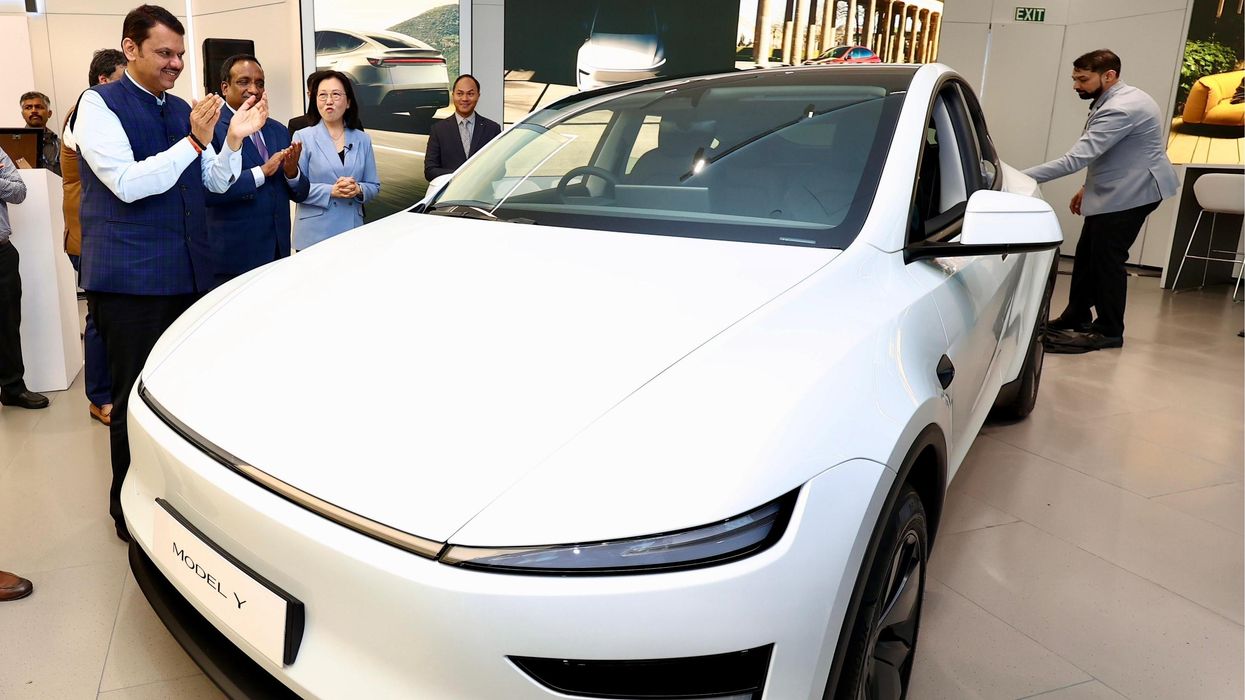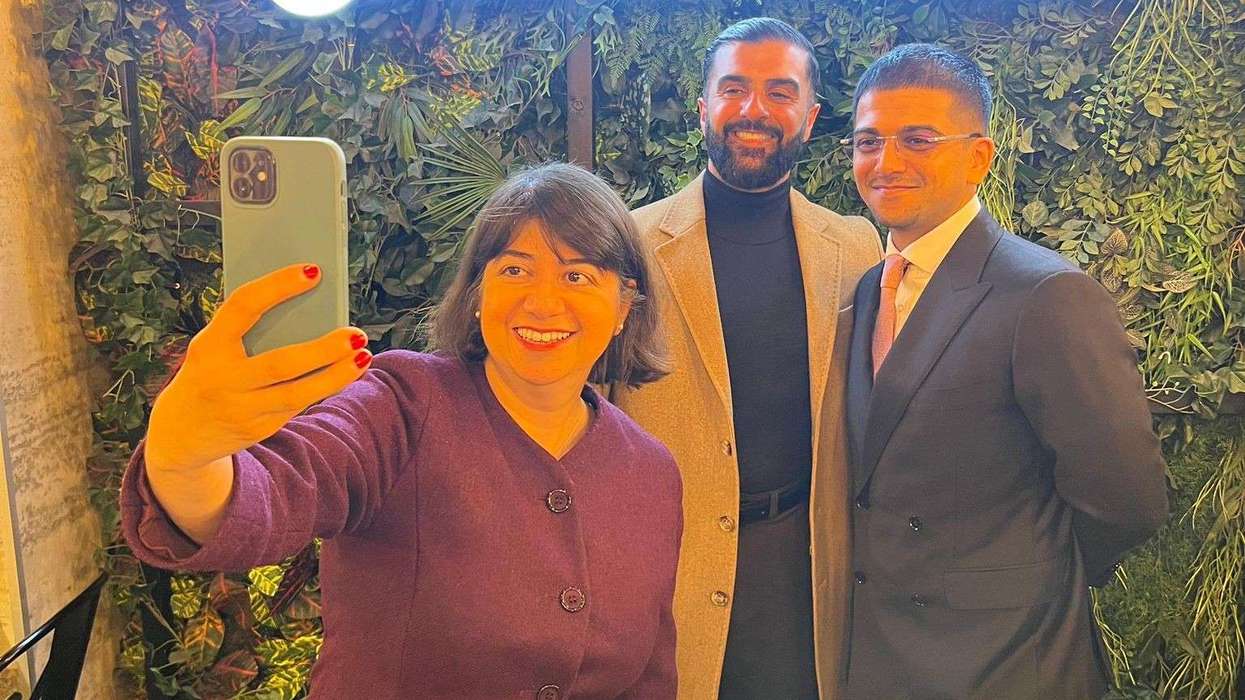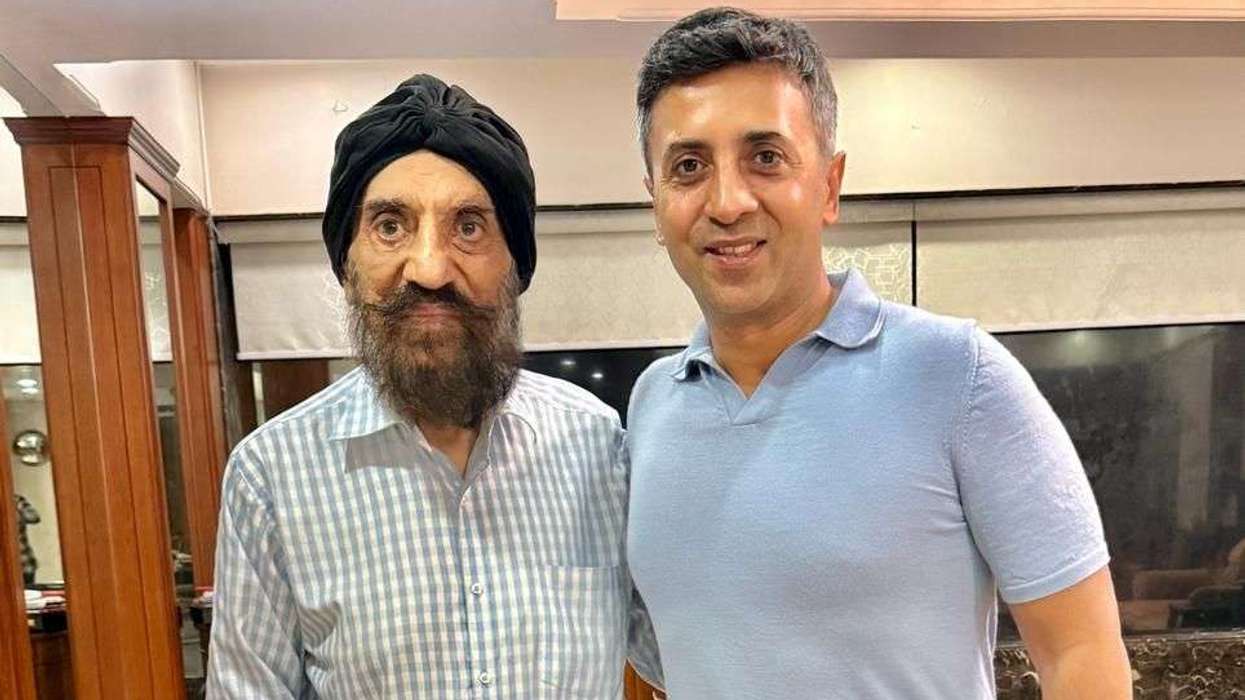TESLA opened its first showroom in India on Tuesday, marking its entry into the country as the electric vehicle company looks for new customers amid declining sales in the United States and Europe.
The showroom, located in Mumbai, was inaugurated by Maharashtra state's chief minister Devendra Fadnavis and opened to select visitors on Tuesday. It will be open to the general public starting Wednesday.
Welcome to India @Tesla
Inaugurated Tesla’s first-ever Experience Centre in India at BKC, Mumbai, today.This is not just the inauguration of an Experience Centre ; it’s a powerful statement—Tesla is here, and it’s chosen the right city and the right state: Mumbai, Maharashtra!"… pic.twitter.com/4ilfAHCEoO
— Devendra Fadnavis (@Dev_Fadnavis) July 15, 2025
Tesla is currently offering its Model Y vehicle in India and plans to begin deliveries of a more affordable variant later this quarter.
"This is the first launch of Tesla in India. It marks a huge milestone for Tesla globally," said Isabel Fan, the company's senior regional director. She added that charging stations will be set up soon in Mumbai and New Delhi.
Despite heavy rains, many onlookers gathered outside the Mumbai showroom to see the cars on display.
Tesla has expressed interest in entering the Indian market for several years but delayed its plans due to high import tariffs on electric vehicles.
Elon Musk had earlier described India as having "more promise than any large country" but has criticised its import duties, calling them among the "highest in the world".
The Indian government has said that it will consider lowering import taxes on electric vehicles if global automakers commit to significant investment and local manufacturing.
Tesla has not yet announced any plans to build a manufacturing plant in India.
According to local media reports, Tesla will initially sell cars imported from China.
As a result, the Model Y in India starts at around $70,000 on-road, as listed on the company's website, compared to the US price of $37,490 after a $7,500 federal tax credit.
Tesla's launch in India comes at a time when the company is facing slowing demand globally. The electric vehicle market, once led by Tesla, is now highly competitive, with rivals including BYD and other Chinese manufacturers.
India is the world’s third-largest car market, but Tesla is not expected to see large volumes in the near future due to the relatively early stage of the country’s electric vehicle sector and the high prices of its models.
Sales of electric vehicles in India reached about 100,000 in 2024, which is less than three per cent of total car sales.
Soumen Mandal, senior analyst at Counterpoint, said Tesla’s pricing puts it out of reach for most Indian buyers and places it in competition with luxury car brands.
"We don't expect Tesla to play the volume game right away given the price tag," Mandal told AFP.
"We project 500-700 units sold in initial months and then that to taper off to 200-300 (per month)."
India is currently in talks with the United States on a trade deal, which includes discussions on reducing tariffs on automobiles.
In February, Elon Musk held a one-on-one meeting with Indian Prime Minister Narendra Modi in Washington.
(With inputs from agencies)





